
BFS Early Childhood (EC) classrooms, drawing inspiration from the Reggio Emilia approach, are designed as purpose-built learning spaces that cultivate exploration and engagement. Guided by a child-centered philosophy, the program values children as active learners and emphasizes collaborative experiences, inquiry projects, and visible documentation. Tailored for three- and four-year-olds, the full-day curriculum nurtures natural curiosity and creativity while fostering development in literacy, numeracy, and creative expression through art, music, and physical education. The program’s focus on socio-emotional growth ensures a secure and supportive environment, preparing students both academically and emotionally for a well-rounded transition to Kindergarten.
EC Entry Requirements
EC Readiness Program
Our Early Childhood program prepares students for a successful transition into the Elementary learning environment in Kindergarten. The Early Childhood program focuses on development of skills including social, communication, inquiry-based play, motor skills, and self-care independence. The key expectations of our Early Childhood Program include:
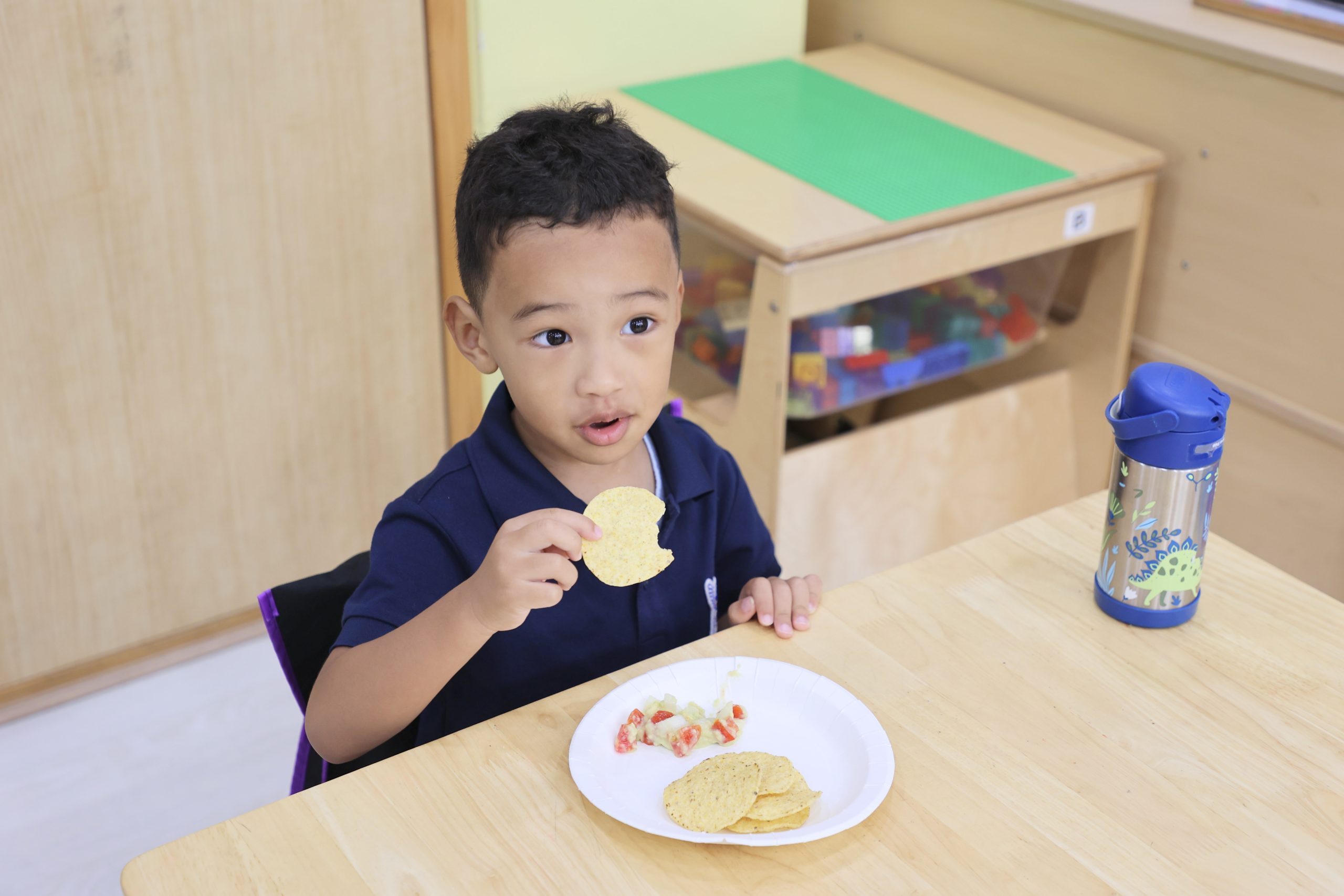
Self-Care
We focus on the importance of taking care of the physical and emotional well-being with positive encouragement and guidance. Learning about hygiene, health, sleep, managing stress, and other topics helps students understand the importance of self-care.
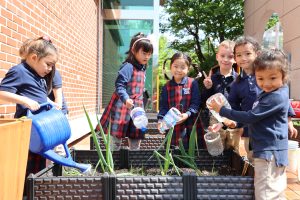
Self-Regulation
Through positive behavior, nurturing emotional awareness, and teaching relaxation techniques, our young learners begin to understand appropriate responses to frustration or challenges. The use of routines, visual aids, and sharing social stories can all help reinforce self-regulation skills.
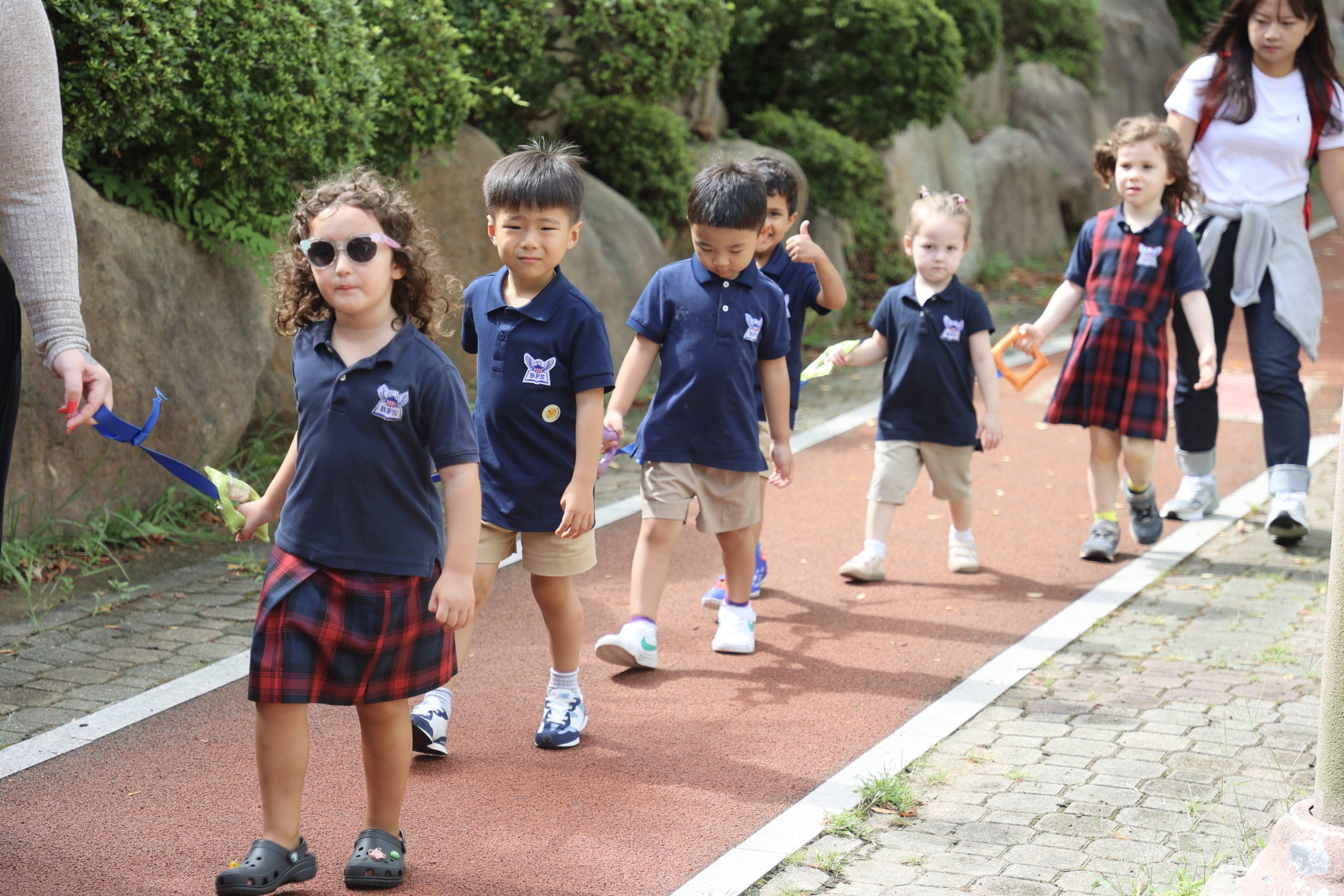
Following Directions
To foster positive direction-following, teachers communicate clearly and offer choices when possible. Establishing routines and encouraging active listening with patience and consistency can help young children follow directions positively and effectively.
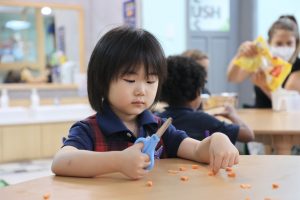
Attention Span
Teaching self-regulation techniques, offering movement breaks alongside engaging activities, and having clear expectations can aid in developing stamina for our young learners. Positive reinforcement, patience, and consistency are essential during as students develop.
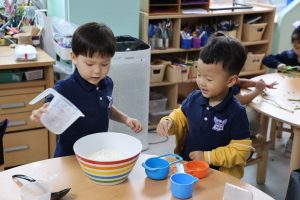
Resilience
We encourage a growth mindset by emphasizing the importance of effort and perseverance rather than focusing on outcomes. Teachers model resilience through their own behavior while demonstrating problem-solving skills and positive coping strategies.
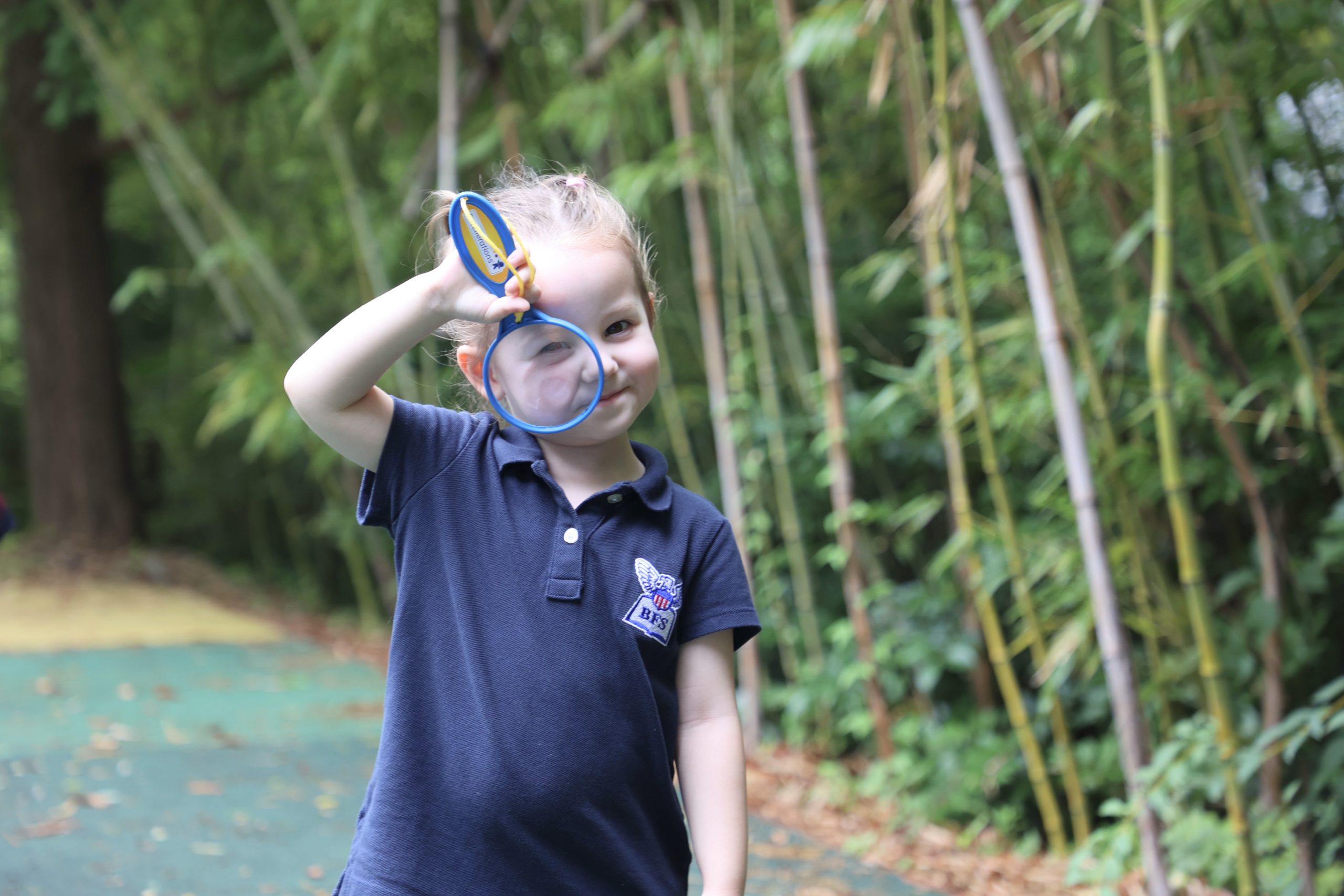
Willingness to Engage
Students are gradually introduced to new activities to help build their skills and confidence as they progress. Tasks are broken down clearly into manageable steps to avoid overwhelming feelings. We encourage exploration and curiosity, emphasizing the process of learning rather than focusing on the end result.

